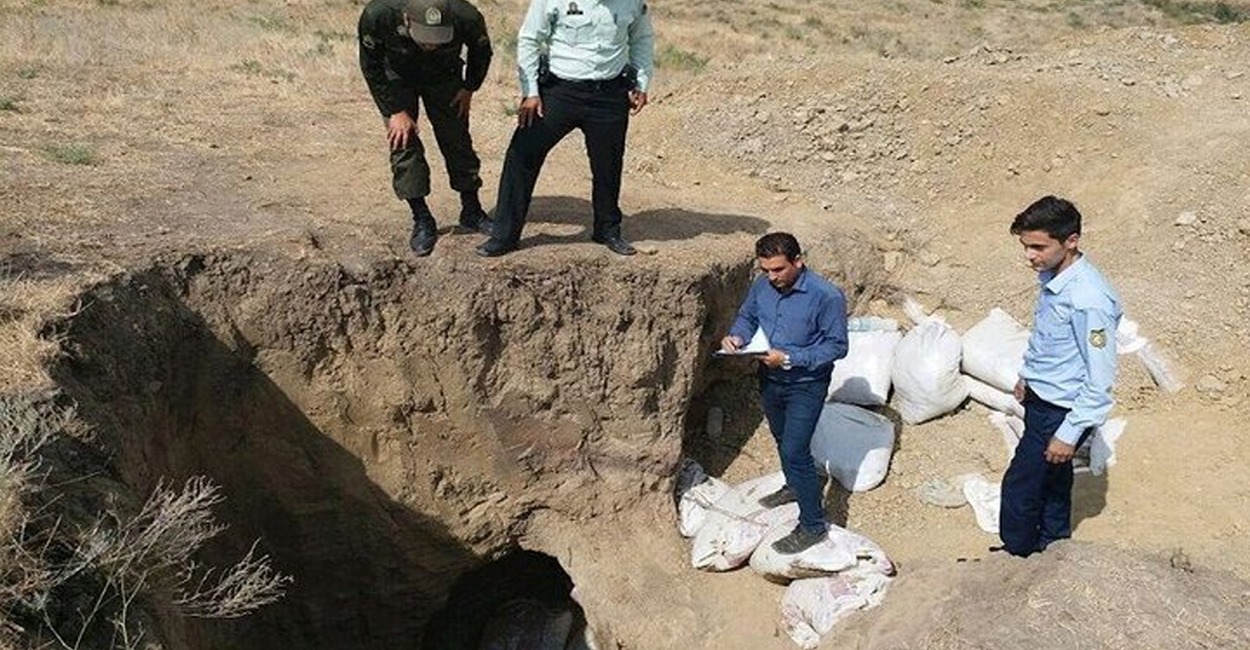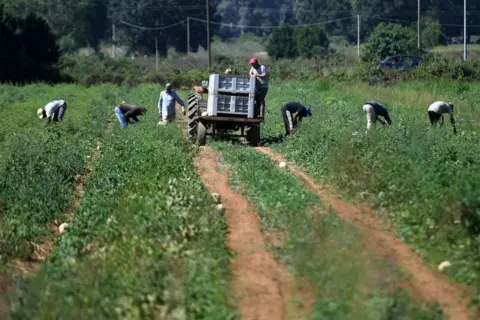Juneteenth offers a ‘window into the complexity’ of US history with slavery, says author
June 19 commemorates the emancipation of enslaved people in the US. But the legacy of African enslavement continues to reverberate in much of the world. Howard French, the author of “Born in Blackness: Africa, Africans and the Making of the Modern World, 1471 to the Second World War,” speaks with host Marco Werman about the persistent damage in West Africa and beyond.
By Joyce Hackel

A woman pays her respect at the National Slavery Monument, on Keti Koti, which means Chains Broken, after Mayor Femke Halsema apologized for the involvement of the city’s rulers in the slave trade during a nationally televised annual ceremony in Amsterdam, Netherlands, July 1, 2021. Peter Dejong/AP
The federal holiday of Juneteenth commemorates a milestone in the emancipation of enslaved people in the United States. It marks the end of legalized slavery in the US. But that history left a bitter legacy that persists both in the country and around the globe.
The World’s host Marco Werman spoke about the holiday with Howard French, who wrote about the global impact of slavery in his 2021 book, “Born in Blackness: Africa, Africans and the Making of the Modern World, 1471 to the Second World War.”
French is also a former New York Times correspondent and currently a professor of journalism at Columbia University.
Cover of “Born in Blackness,” by Howard W. French, published Oct. 12, 2021.Courtesy of W. W. Norton & Company
Marco Werman: You write so eloquently, Howard, about how Africa’s histories are histories of erasures. As Americans celebrate emancipation, what do you think are some of the threads of this story that maybe have gotten lost?
Howard French: I think the first and most important thread is the very origin story of the West and of the modern world. And the thesis of my book is that this begins with Europe’s contact with Africa. It starts with the idea that there was this thing called the Age of Exploration and the Iberians, and in particular the Portuguese, were hellbent on reaching Asia.
And it was Asia as a kind of monomania, and that Africa was nothing but a geographical obstacle in the way — a place of no inherent interest of its own, where Europe didn’t really learn anything, didn’t really gain in any way and had no importance historically speaking.
And so, the book is a kind of sustained assault on that idea, which makes the case that the Europeans, the Iberians, not only didn’t rush onward to Asia, they dwelled for quite some time and with extraordinarily interesting results in Africa prior to their pursuit of wealth in Asia. That’s sort of the biggest erasure in history.
And then, subsequently, Portugal is born as a major modern power because of the wealth, first in gold that it gets out of Africa, and then by founding the most important institution, economically speaking, of the Modern Age, which is chattel slavery.
And this happens on the tiny island of Sao Tomé. And it changes everything, it changes the European diet, it gives rise to European democracy. Perversely enough, it makes the Western Hemisphere, the United States and all of the continents of North and South America, economically viable through the tragedy of slavery.
And it fosters the birth of this term we throw around very loosely without really thinking about what it means, and that is “the West.” The West was born with the catalyst of African labor.
That’s the really important point. I think the labor of enslaved people from Africa led to this age of modernity and massive national fortunes. So, we read in historical accounts of how the institution of slavery devastated societies in West Africa, how it ripped apart communities and threw local economies and agriculture into disarray. How do you see the impact of that disruption continuing today in West Africa?
I see it everywhere I look. You know, the modern world kind of comes together and gives birth to nation-states and borders and nationalities and flags and things like that. Europe was able to do that, in large part, on the basis of wealth extracted in resources and labor from Africa. But the extraction of those things from Africa impoverished the continent in lasting ways. Healthy young men and women of childbearing age were being extracted from West and Central Africa, over 100,000 people every year, sometimes 200,000 people a year, for a whole century.
Extraordinary.
And this has a very long tail.
In the modern day, in the wake of this human and economic plunder of Africa, there’s a global movement seeking reparations. There was even a summit, as you know, last year in Ghana, where the African Union and Caribbean nations came together to try and persuade European nations to pay for their “historical mass crimes.” Where does that movement stand today? Is it gaining traction?
I think about a month ago, Portugal, which was the largest slave-trading nation in history, came very close, it seemed, to issuing a formal apology from the government, recognizing, at least in principle, its obligation to pay some kind of reparations. At the very last minute, that came undone. This is kind of a Charlie Brown situation, where we walk right up to the precipice of action on reparations over and over and over again, and we never quite really get there.
A photo of the Dutch royal family’s Golden Carriage, at the Amsterdam Museum in Amsterdam, decorated with a painting that has drawn fire from critics who say it glorifies the Netherlands’ colonial past, including its role in the global slave trade, January 19, 2022.Peter Dejong/AP/File photo
We should point out, too, that the Catholic Church provided a crucial papal endorsement in the 15th century for the Portuguese to go to West Africa and conquer. What overtures has the Church made toward reparations of some sort?
The Catholic Church was, in the 16th century, one of the largest operators of chattel slave plantations in the New World. The Jesuits, in particular, operated immense plantations in Mexico using African chattel labor.
The same was true in various other places, from what is today the Dominican Republic and Haiti, meaning Hispaniola, to Brazil, on and on and on. So, the Catholic Church didn’t just give an ideological or theological blessing to the enslavement of Africans, but it also directly profited under the most brutal of circumstances.
The Catholic Church has, I think, condemned the evil of slavery and its language. But I don’t think that the Catholic Church has done anything like it has done, let’s say, with the sexual abuse of young people by priests, and saying that we actually have a fiduciary obligation.
As you think about the narrative of the enslavement of people and how it ended, how that story is told by the West and how it was experienced by Africans and African Americans, how do you think about Juneteenth, Howard? What reflections come to you on this day?
I have to be candid with you. As an African American, I did not grow up participating in Juneteenth. I’m delighted that Juneteenth has taken on the popularity that it seems to have belatedly acquired. I think it’s a wonderful window into the complexity of our history with regard to slavery.
We imagine that slavery ends with the Northern victory in the Civil War and, of course, Juneteenth helps us understand that isn’t true.
We should also understand, I think, that slavery doesn’t, in fact, end with Juneteenth.
The struggle for African Americans to acquire true citizenship extends well into the recent past and, some would even say, into the present.
I grew up in a society where discrimination against Black people was not simply a matter of custom or practice but was de jure, meaning it was the law. It was legally allowed. I witnessed this as a young man, as a child in the Virginia of my parents. And anyone my age and indeed people somewhat younger than me, all grew up with this in their faces. And so, the beauty of Juneteenth is to help complexify a little bit the stories that we tend to often iron out and simplify.
Juneteenth occurred a century and a half ago, but its wide observance as a holiday is recent. What do you think people need to do now to make it meaningful, rather than just another federal holiday?
I’m a photography buff. There’s a photography blog that I’ve read for many, many years — a little blog by a very smart, curious-minded guy. And he said something that jarred me. He was encouraging readers of the blog to acknowledge that it was Juneteenth and that this was a big deal for African Americans.
But he said, this is an exclusive — I don’t think he meant malice by it — but this is an exclusively Black holiday, he used that phrase. I
do not think that’s how we should understand Juneteenth. I think that Juneteenth should be understood, if it is to be worthwhile, as an American holiday and that it is a celebration, or it should be a celebration, of America’s complexity and a recognition of how America did not transit, as in a sort of one fell swoop from one state of enslavement of African Americans into another state of pristine freedom for African Americans. And that that’s really never how history works. You know, this is constant work, and the constant work is not the work of Black people. The constant work, if we are to be a nation, is the work of all Americans. And so, remembering this just as something for Black people is to devalue it.
This interview has been lightly edited and condensed for clarity. AP contributed to this report.







 Getty Images
Getty Images Dr Lauren Brent
Dr Lauren Brent